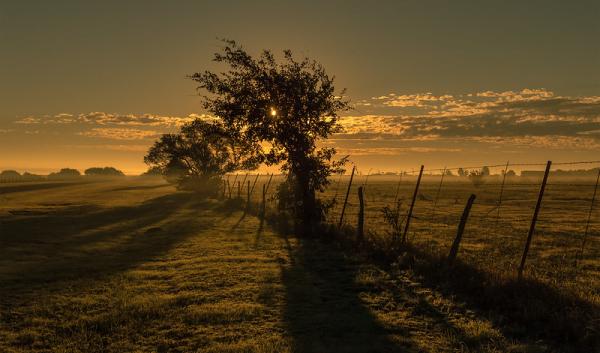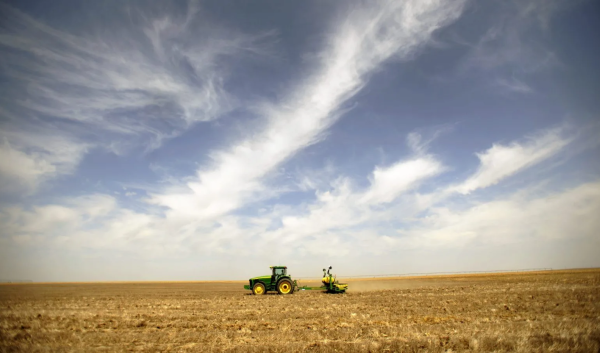Carbon & Greenhouse Gases

Carbon is one of the most important elements found on Earth. The carbon cycle supports all life by transferring carbon between living things and the environment. Plants take up carbon dioxide (CO2) and release oxygen (O2) during photosynthesis, which transfers carbon to their stems, roots, and leaves as they grow. When leaves fall and decompose or when plants die, the carbon that was stored in plants is released through respiration or combustion and transferred back to the atmosphere or to the soil.
Global concentrations of the most important long-lived greenhouse gases (GHG) in the atmosphere have increased measurably since the onset of the Industrial Revolution in 1750. Agriculture and forestry practices may either contribute to or remove GHGs from the atmosphere. Agriculture and forestry have contributed to GHGs in the atmosphere through cultivation and fertilization of soils, production of ruminant livestock, management of livestock manure, land use conversions, and fuel consumption.
Climate change is already having an impact on ecosystems across the world, and many of these changes are expected to continue or accelerate in the future. Opportunities to mitigate atmospheric greenhouse gas emissions is driving interest in managing carbon within ecosystems, highlighting the important role forests and grasslands play in sequestering CO2 and providing a source of renewable energy. At the same time, changes in the Earth’s climate system are altering forests in dramatic ways, which can also have consequences for the emission of carbon and other greenhouse gases.
-
Dealing with high input costs or climate change? Why not do both?
When you work on climate change issues and agriculture, you never know what you’re going to get hit with when you go to…
-
Using Woody Biomass for Fuel and Energy in the Northwest
Leftover wood from harvest and fuel treatments can be a sustainable source of energy in the Northwest.
-
Agricultural Biomass for Biofuel
Biofuels created from food waste and non-food crops in the Northwest have the potential to support sustainable forms of…
-
Biofuel Production
A description of the various processes to make biofuel and the type of fuel each process makes.
-
Delmarva and the Ground for Change
A documentary film about three family-owned farming operations who are leaders in practices that promote healthy soils…
-
Biomass Energy in the Northwest
Biomass energy, or energy made from plant and animal products, is a source of renewable energy. It reduces our reliance…
-
Cost-effective strategies to Reduce Agricultural Greenhouse Gases
Crop and livestock production lead to the unintentional release of greenhouse gases. Now, farmers can do something…
-
Following Nutrient Management Guidelines can Help to Reduce Nitrous Oxide Emissions
Nutrient management guidelines have largely been developed to protect water quality, but practices that improve…









